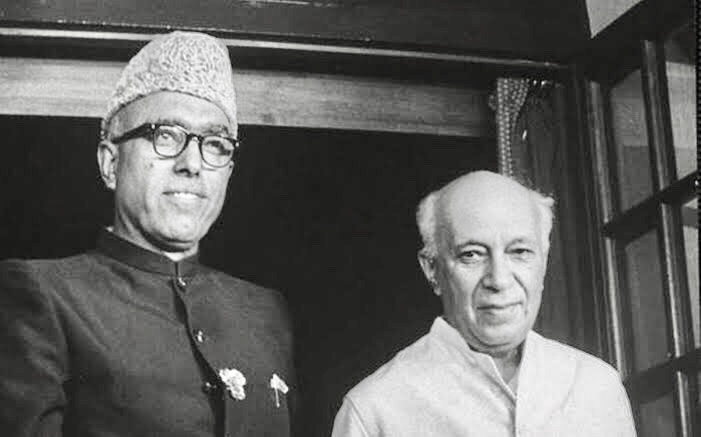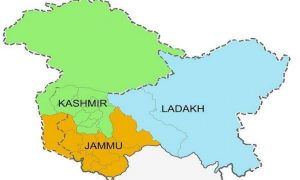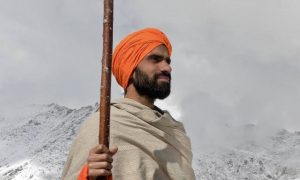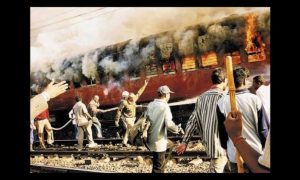By Sant Kumar Sharma
Rajasthan Chief Minister Ashok Gehlot is guarding Congress MLAs as also Independents supporting his government by keeping them in a hotel. In Gujarat, eight Congress MLAs resigned recently, on the eve of Rajya Sabha elections scheduled in the state.
Gehlot has alleged that the BJP wants to topple his government. He added that if he was not careful, events like Karnataka and Madhya Pradesh would be repeated in Rajasthan too. He is virtually spending sleepless nights in the run-up to these elections.
Incidentally, Rajya Sabha elections are keenly contested between rival political parties these days. Most MLAs vote along party lines but there is cross-voting too. Independent MLAs are much sought after during these polls because their votes can make a difference to the fate of the contestants.
All this was not a problem for Sheikh Mohammad Abdullah in Jammu and Kashmir in his heyday. He ruled the state absolutely unchallenged and even had the designation of Prime Minister due to blessings of Indian Prime Minister Jawaharlal Nehru.
During his first stint, no elections were held for the four Rajya Sabha seats. In fact, no elections were held for even six Lok Sabha seats. All these 10 MPs were chosen and handpicked by Sheikh himself.
He chose the men and they became MPs. As simple as that. The legislators did not cast their votes choosing any candidate/s. The formality to be observed was that Sheikh named 10 men, six for the Lok Sabha and four for the Rajya Sabha, on his own. After a discussion in the legislature, they all became MPs.
In this manner, 10 MPs to represent Jammu and Kashmir, in both the Lok Sabha and the Rajya Sabha, were chosen. Not chosen by the legislators, as happens for choosing the Rajya Sabha MPs, or the people directly as happens in case of the Lok Sabha MPs now.
In this manner, 10 MPs were chosen by Sheikh on March 25, 1952. This has been recorded in the proceedings of the Constituent Assembly, volume 1, 1951-55. Once the proceedings of the Constituent Assembly began that day, Sheikh Mohammad Abdullah moved a proposal:
“This Assembly proposes the names of the following persons for being chosen as representatives of the State of Jammu and Kashmir in the two Houses of the Parliament of India and authorises the Government of Jammu and Kashmir to make a recommendation to the the President of the Indian Republic in accordance thereewith.
Council of States (read Rajya Sabha)
1. S Budh Singh
2. Col Pir Mohd Khan
3. Rai Bahadur Anant Ram
4. Aga Syed Mohd Shah Jalali
House of the People (read Lok Sabha)
1. Maulana Mohd Saeed Masoodi
2. Major Lacchman Singh Charak
3. Sofi Mohd. Akbar
4. Pt. Shiv Narain Fotedar
5. Ch. Mohd. Shafi
6. Kh. Ghulam Qadir
Explaining the reasons for adoption of this method, he said: The delimitation of the constituencies was a difficult problem and in view of this difficulty, provision was made in the People’s Representation Act that election for the Indian Parliament in the Jammu and Kashmir State will be conducted in a different manner from the one to be observed in other States of India.”
Sheikh explained further that Article 370 gave extraordinary powers to J&K and it can shape “its own destiny through its own Constituent Assembly”. Further, he said: “Today if we are electing members of the Indian Parliament from this State it is a consequence of that very status.”
Sheikh then went on to list virtues of all the 10 men chosen by him. Some members spoke in favour of his proposal and made perfunctory remarks extolling him and his chosen men.
It was a scheduled caste membe, Mahasha Nahar Singh, of the Constituent Assembly who pointed out that no SC had been chosen. He said: I regret to say that except Harijans, every other community has been given representation though they have whole heartedly supported the National Conference. This is the one defect I can see in the resolution. Muslims have got six seats, Brahmans two, Rajputs one and Sikhs one. Only the Harijans have been deprived of their representation.
“I would like to bring it to the notice of the Hon’ble Leader of the House that the total population of Harijans in the State comes to more than 4.5 lakhs and if this community has been ignored because it is because it is a backward community and had always supported the National Conference. Had this community not associated itself with the National Conference, I believe they too would have got separate representation.”
He made some more points regarding the Harijans being ignored by Sheikh Mohammad Abdullah and the National Conference. He insisted that it was unfair to the community to be deprived of representation in both the Lok Sabha and the Rajya Sabha.
Sheikh Abdullah then remarked that all, irrespective of their religious affiliations, or their castes, enjoyed equal status in J&K. As such, no change was warranted in the names of people he had chosen to be MPs, be it of the Lok Sabha or the Rajya Sabha.
This process of choosing MPs, and holding no elections, continued for more than a decade after this. It bears mention here that delimitation of the six Lok Sabha seats allotted to J&K has not been done fairly till date. The provisions of Representation of People’s Act, 1951, were never applied to the entire territory of the state.
On August 5, 2019, the separate Constitution of state of J&K was scrapped and it was reorganized into two UTs of JK and Ladakh. Before elections are held afresh, a fresh delimitation has also been ordered. The delimitation commission formed for this purpose has been tasked with carving out 90 legislative assembly seats. It will also delimit the five Lok Sabha seats under the provisions of the RPA, 1951, for the first time since independence.









